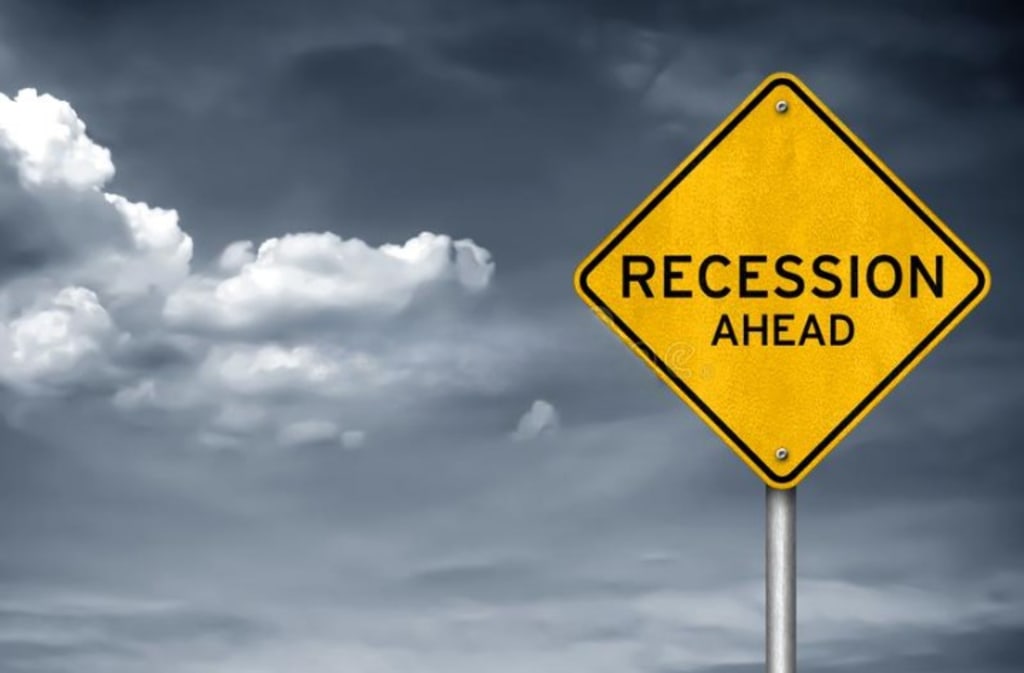What is the best way to survive a recession?
Always prepared

What is the best way to survive a recession?
There are several ways to survive a recession and mitigate its impact on your finances:
1. Build an emergency fund: Having a savings cushion can help you weather the storm if you lose your job or face other financial setbacks. Aim to save at least three to six months' worth of living expenses.
Building an emergency fund is an important step in protecting yourself from financial setbacks. Here are some tips on how to build an emergency fund:
Start small: Even small contributions can add up over time. You can start by setting aside a small amount each week or month, and then increase the amount as your income and expenses allow.
Set a goal: Decide how much money you want to have in your emergency fund and set a deadline for reaching that goal.
Automate your savings: Set up automatic transfers from your checking account to your savings account so that you don't have to think about it.
Find ways to save: Look for ways to reduce your expenses and save more money, such as cutting back on non-essential purchases, negotiating bills, and finding cheaper alternatives.
Avoid unnecessary debt: Minimize your debt as much as possible, and avoid taking on new debt that could make it harder for you to save.
Make the most of windfalls: When you receive a windfall, such as a bonus, tax refund, or an inheritance, put it into your emergency fund.
Keep the fund in a high-yield savings account or CD: this will ensure that your money is accessible when you need it, and also earn interest on the money you saved.
Review your emergency fund regularly: Review your emergency fund regularly to make sure you're on track to reach your savings goal.
Building an emergency fund takes time and discipline, but it's an important step in protecting yourself from financial setbacks. By following these tips, you can start building your emergency fund today.
2. Cut expenses: Look for ways to reduce your spending, such as cutting back on non-essential purchases, negotiating bills, and finding cheaper alternatives.
Cutting expenses is an effective way to save money and reduce your overall spending. Here are some ways to cut expenses:
Make a budget: Create a budget that outlines all of your income and expenses, and look for areas where you can reduce your spending.
Track your expenses: Keep track of all of your expenses for a month, and then review them to see where you can cut back.
Prioritize your spending: Identify what is most important to you and focus your spending on those things.
Negotiate bills: Contact your service providers and see if they can offer you a better deal or if there's a way to lower your monthly bills.
Cut unnecessary subscriptions: Review all of your subscriptions, such as streaming services or gym memberships, and cancel any that you don't use or need.
Shop smart: Compare prices and look for sales and discounts when shopping.
Cook at home: Instead of eating out, try cooking at home. This can save you a lot of money in the long run.
Reduce your transportation costs: Consider using public transportation, carpooling, or biking to work instead of driving to save on gas and car maintenance costs.
Reduce energy costs: Look for ways to reduce your energy costs, such as using energy-efficient appliances and turning off lights when you're not in the room.
By cutting expenses, you can free up more money to put towards savings, paying off debt, or other financial goals. It takes time and effort, but it can be well worth it in the long run.
3. Review your budget: Make sure you are living within your means, and consider creating a budget to keep your spending in check.
4. Invest in yourself: Look for ways to improve your skills and make yourself more marketable, whether through education or training programs.
5. Diversify your income streams: Try to have multiple sources of income, such as a part-time job or a side hustle, to reduce your dependence on a single employer or industry.
6. Be mindful of your debt: Try to pay down high-interest debt as soon as possible, and avoid taking on new debt during a recession.
7. Be Prepared for unemployment: Have a plan in place in case you lose your job, such as updating your resume, networking and being ready for job interviews
8. Be aware of government programs and benefits: Find out what government programs and benefits are available during a recession, such as unemployment insurance, and take advantage of them if you need to.
Advantages and disadvantages of Economic recession:
Economic recession is a period of economic decline, characterized by a decrease in gross domestic product (GDP), high unemployment, and reduced consumer spending. Here are some of the advantages and disadvantages of economic recession:
Advantages:
1. Low interest rates: During a recession, central banks often lower interest rates to encourage borrowing and spending, making it easier for individuals and businesses to access credit and invest.
2. Affordability: The decrease in consumer spending during a recession can make it easier for people to afford things like housing, cars, and other big-ticket items.
3. New opportunities: A recession can create new opportunities for entrepreneurs and investors, as businesses that have been struggling may be more willing to take risks or try new things.
4. Forced efficiency: A recession can force companies to trim costs, become more efficient and improve their productivity, which could lead to better performance in the long run
Disadvantages:
1. High unemployment: One of the most significant consequences of a recession is the loss of jobs, and high unemployment can lead to financial hardship and social unrest.
2. Reduced consumer spending: A decrease in consumer spending can lead to a decline in economic activity, which can cause businesses to fail and lead to further job losses.
3. Increased debt: Many individuals and businesses may take on debt to weather the recession, which can cause long-term financial problems.
4. Reduced government spending: Governments facing budget deficits may reduce public spending on social services, infrastructure, and other programs, which can further negatively impact the economy and people's lives.
5. Long-lasting impact: The effects of a recession can be long-lasting, and it can take a long time for an economy to recover.
Overall, economic recession can have both short-term and long-term impacts on individuals, businesses and the economy as a whole. While there can be some advantages during a recession, the negative effects often outweigh the positive. It is important for government and individuals to be prepared for economic downturns and to have a plan to mitigate the negative effects.
It's important to remember that a recession can be a difficult and uncertain time, but by taking steps to protect yourself and your finances, you can increase your chances of weathering the storm.
About the Creator
Suresh Natarajan
Welcome to my page where I share my love for the Bible. I am a deeply faithful person, and it brings me great joy to share the lessons I've learned through my faith. Join me as I explore biblical stories and daily prayer! Please Subscribe!






Comments
There are no comments for this story
Be the first to respond and start the conversation.